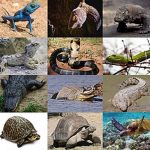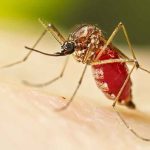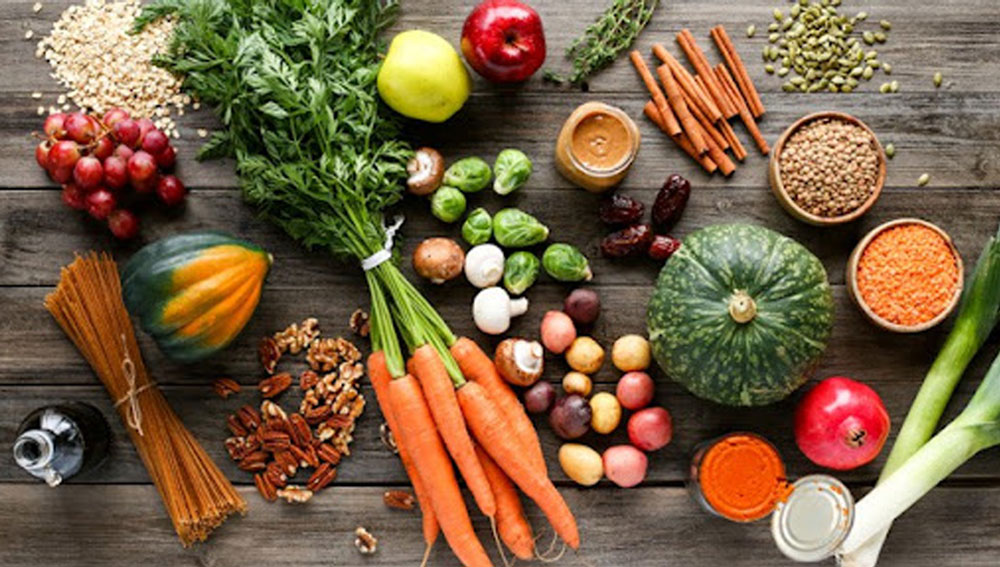Dr. N. Munal Meitei,
Environmentalist, email- nmunall@yahoo.in

Our environment provides us everything. But, human is pushing our planet to its limits and we’re paying the price. If we don’t take action today, then we will lose the majestic lakes, rivers, lush forests, rich soils and other natural resources that sustain lives on Earth.
World Vegan Day is observed on 1st November with the theme for 2024, “Many Lives” to reflect the interconnectedness of all beings and the Planet. Each one of us has a carbon footprint. Going vegan is the single biggest way to reduce our Veganism is for both People and Environment
Our environment provides us everything. But, human is pushing our planet to its limits and we’re paying the price. If we don’t take action today, then we will lose the majestic lakes, rivers, lush forests, rich soils and other natural resources that sustain lives on Earth.
World Vegan Day is observed on 1st November with the theme for 2024, “Many Lives” to reflect the interconnectedness of all beings and the Planet. Each one of us has a carbon footprint. Going vegan is the single biggest way to reduce our carbon emission up to 73% and deforestation upto 94%. UN identifies plant-based diets as a major opportunity for mitigating and adapting to climate change and recommends every nation to adopt policies to reduce meat consumption.
Converting grass into meat is like converting coal to energy. A dairy farm with 2,500 cows produces the same amount of waste as a city of 4,11000 people. The world’s cattle alone consume a quantity of food equal to the caloric needs of 8.7 billion people, more than the entire global human population. But, if we all went vegan, the earth’s food-related emissions might drop by 68% within 15 years. Vegan diets will also reduce water use by 50% and land use by 70-80%.
Animal farming is destroying our environment. Meat and dairy diet is inherently wasteful. Remember that for every 100 calories fed to animals, we receive back only 12 calories by consuming their flesh and milk. The net zero emission aiming for 1.5°C by 2100 will be possible via a shift towards plant-based diets only.
WHO says, reducing livestock herds would reduce emissions of methane, which is the second largest contributor to global warming after carbon dioxide. If production remains unregulated, by 2050, dairy farming will account for 80% of greenhouse gas emissions. It also uses 70% of the world’s freshwater and causes 80% of river and lake pollution. Study found vegan diets also cut the destruction of wildlife by 66%.
It takes a lot of land to meet global meat demand – so much that about one-third of the Earth’s landmass is used to raise animals. The meat industry clears millions of forests for grazing. When we clears forests for cattle and cropland, it doesn’t just destroy the trees—it takes away habitat for the thousands of wildlife who call forests home. Meat consumption is thought to be one of the leading causes of modern species extinctions. As species lose on their habitats, it’s estimated 135 species of plants, animals and insects are extinct every day.
According to a climate change report, eating 75 grams of beef daily for a year emits greenhouse gas equivalent to driving a car over 11580 km, whereas eating 150 grams of beans – twice the beef – daily for a year, which is equivalent to driving 150 km only.
Right now, the vast majority of antibiotics are administered in animals raring. This contributes to the growing threat of antibiotic resistance, superbugs that can endanger human health and antimicrobial resistant infections may become the leading cause of death globally by 2050.
The benefits of vegetarian diets are; weight loss, reduce risk of heart diseases, cancer and manage diabetes. Lifestyle and diet are the biggest contributors for diabetes. Plant-based diets help to keep the insulin and glucose levels intake. According to a latest research, becoming a vegetarian can increase strong immune system keeping us away from diseases more than those who are non-vegetarians.
A shift to a plant-based diet will reduce the global mortality by 10%. Just a global dietary shift would save an estimated 79 million human lives and avoid 5.1 million deaths per year. Estimates for a completely vegan diet project closer to saved 129 million lives and 8.1 million deaths avoided. These projections also saw trillions of rupees saved in health care costs by 2050.
Vegetarian diets are good for both people and the planet. Being vegetarian and vegan can create a better world because vegetarian diets have proven health benefits, save animals lives and help to preserve the planet. You can reduce your carbon footprint by 50% if you go with vegan. Vegan diets save animals from suffering in factory-farm conditions and from the pain and terror of slaughter. It also conserves vital but limited freshwater, fertile topsoil, precious resources including irreplaceable ecosystems.
As empathy, we are all a part of nature. Being vegetarian and vegan will make the world a better place not only for animals, but for our health and environment too. It is a change from an unhealthy to a healthy habit and diet. To become vegetarian lifestyle is the ethical, environmental and humanitarian benefits. Yes, we faced the threats from insecticides and pesticides in the vegetables but comparatively, vegetarian and vegan are best.
Therefore to become vegetarian and vegan have the best option in a brighter side of life. Such acts will surely save us from the climate crisis leading to a healthy environment and the mother Earth.
carbon emission up to 73% and deforestation upto 94%. UN identifies plant-based diets as a major opportunity for mitigating and adapting to climate change and recommends every nation to adopt policies to reduce meat consumption.
Converting grass into meat is like converting coal to energy. A dairy farm with 2,500 cows produces the same amount of waste as a city of 4,11000 people. The world’s cattle alone consume a quantity of food equal to the caloric needs of 8.7 billion people, more than the entire global human population. But, if we all went vegan, the earth’s food-related emissions might drop by 68% within 15 years. Vegan diets will also reduce water use by 50% and land use by 70-80%.
Animal farming is destroying our environment. Meat and dairy diet is inherently wasteful. Remember that for every 100 calories fed to animals, we receive back only 12 calories by consuming their flesh and milk. The net zero emission aiming for 1.5°C by 2100 will be possible via a shift towards plant-based diets only.
WHO says, reducing livestock herds would reduce emissions of methane, which is the second largest contributor to global warming after carbon dioxide. If production remains unregulated, by 2050, dairy farming will account for 80% of greenhouse gas emissions. It also uses 70% of the world’s freshwater and causes 80% of river and lake pollution. Study found vegan diets also cut the destruction of wildlife by 66%.
It takes a lot of land to meet global meat demand – so much that about one-third of the Earth’s landmass is used to raise animals. The meat industry clears millions of forests for grazing. When we clears forests for cattle and cropland, it doesn’t just destroy the trees—it takes away habitat for the thousands of wildlife who call forests home. Meat consumption is thought to be one of the leading causes of modern species extinctions. As species lose on their habitats, it’s estimated 135 species of plants, animals and insects are extinct every day.
According to a climate change report, eating 75 grams of beef daily for a year emits greenhouse gas equivalent to driving a car over 11580 km, whereas eating 150 grams of beans – twice the beef – daily for a year, which is equivalent to driving 150 km only.
Right now, the vast majority of antibiotics are administered in animals raring. This contributes to the growing threat of antibiotic resistance, superbugs that can endanger human health and antimicrobial resistant infections may become the leading cause of death globally by 2050.
The benefits of vegetarian diets are; weight loss, reduce risk of heart diseases, cancer and manage diabetes. Lifestyle and diet are the biggest contributors for diabetes. Plant-based diets help to keep the insulin and glucose levels intake. According to a latest research, becoming a vegetarian can increase strong immune system keeping us away from diseases more than those who are non-vegetarians.
A shift to a plant-based diet will reduce the global mortality by 10%. Just a global dietary shift would save an estimated 79 million human lives and avoid 5.1 million deaths per year. Estimates for a completely vegan diet project closer to saved 129 million lives and 8.1 million deaths avoided. These projections also saw trillions of rupees saved in health care costs by 2050.
Vegetarian diets are good for both people and the planet. Being vegetarian and vegan can create a better world because vegetarian diets have proven health benefits, save animals lives and help to preserve the planet. You can reduce your carbon footprint by 50% if you go with vegan. Vegan diet save animals from suffering in factory-farm conditions and from the pain and terror of slaughter. It also conserve vital but limited freshwater, fertile topsoil, precious resources including irreplaceable ecosystems.
As empathy, we are all a part of nature. Being vegetarian and vegan will make the world a better place not only for animals, but for our health and environment too. It is a change from an unhealthy to a healthy habit and diet. To become vegetarian lifestyle is the ethical, environmental and humanitarian benefits. Yes, we faced the threats from insecticides and pesticides in the vegetables but comparatively, vegetarian and vegan is best.
Therefore to become vegetarian and vegan have the best option in a brighter side of life. Such acts will surely save us from the climate crisis leading to a healthy environment and the mother Earth.













